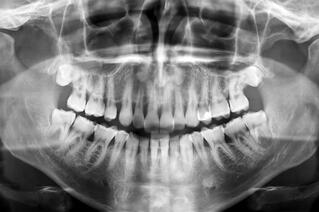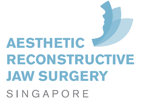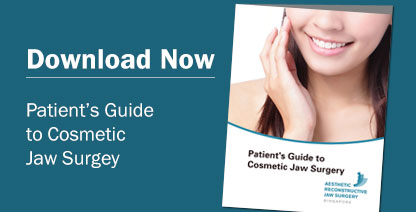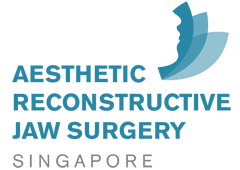Share this
Corrective Jaw Surgery Risks You Should Know About
on September 19, 2014
 Corrective jaw surgery, as your Singapore oral and maxillofacial surgeon and/or orthodontic specialist will explain to you, is considered a safe and effective treatment for the functional and aesthetic problems caused by misaligned or mismatched jaws. However, if you're considering jaw surgery, you should know that, as is the case with any surgery, this procedure is not risk-free. While a detailed explanation of the risks in your particular case can only be given by your own dental care team, here we'll provide a general overview of potential corrective jaw surgery risks and complications.
Corrective jaw surgery, as your Singapore oral and maxillofacial surgeon and/or orthodontic specialist will explain to you, is considered a safe and effective treatment for the functional and aesthetic problems caused by misaligned or mismatched jaws. However, if you're considering jaw surgery, you should know that, as is the case with any surgery, this procedure is not risk-free. While a detailed explanation of the risks in your particular case can only be given by your own dental care team, here we'll provide a general overview of potential corrective jaw surgery risks and complications.
About Corrective Jaw Surgery In Singapore
Corrective jaw surgery, also commonly referred to as orthognathic surgery, is a treatment process that is done in adult patients to correct conditions related to misaligned or mismatched jaws, including skeletal underbite, overbite, open bite and cross bite. It is a collaborative treatment process that involves a Singapore oral and maxillofacial surgeon, who is in charge of surgically correcting the shape, position or size of the jaws, and an orthodontist, who handles the task of moving teeth into proper position for that corrected jaw alignment.
Potential Corrective Jaw Surgery Risks And Complications
Corrective jaw surgery is a fairly routine treatment for the functional and aesthetic issues caused by skeletal malocclusions, and serious complications are not common. However, in a small percentage of patients who have these procedures, both short-term and long-term complications can occur. Among the potential short-term issues are:
- Excessive bleeding
- Infection
- Dental damage
- Facial numbness or tingling in areas that may include the lips, chin, cheeks, tongue and nose
- Anesthesia reactions, including nausea and vomiting
Longer-term complications in patients who undergo orthognathic surgery in Singapore can include:
- Nerve damage, which can result in permanent loss of sensation in areas of the face, including the lips, chin, cheeks, tongue and nose
- TMJ disorders, or chronic jaw clicking and/or pain
- Poor cosmetic outcomes
- Recurrence of a patient's original jaw issues
While anyone considering a procedure should be aware of potential corrective jaw surgery risks, it is important to keep in mind that the vast majority of patients will not suffer any serious complications. There will be some discomfort, pain and swelling after surgery, affects that are to be expected and are experienced by virtually all jaw surgery patients. Typically, patients find that these issues are largely resolved within 6 to 8 weeks of surgery. All-in-all, most patients who have corrective jaw surgery are pleased with the functional and aesthetic improvements it yields, satisfied that the benefits of the procedure outweigh the risks and discomforts of the treatment process.
Share this
- Jaw Surgery (93)
- Dental Implants Singapore (90)
- Orthognathic Surgery (48)
- Replacing Missing Teeth (26)
- Missing Teeth Options (23)
- Underbite (23)
- Bone Grafting (21)
- Costs (18)
- Facial Aesthetics (18)
- Aesthetics (17)
- dental implants (16)
- corrective jaw surgery (15)
- BOTOX (11)
- Dermal Fillers (11)
- Wisdom teeth (10)
- Fixed Implant Dentures (8)
- Loose Dentures Singapore (6)
- Medisave (6)
- sleep apnea (6)
- Braces (5)
- Dental Pain (5)
- Dentures in Singapore (5)
- Loose Teeth (5)
- Tooth Extraction (5)
- jaw deformities (5)
- bimax (4)
- bone graft (4)
- maxillomandibular advancement (4)
- all-on-4 (3)
- bimaxillary protrusion (3)
- chin implant (3)
- facial asymmetry (3)
- full mouth dental implants (3)
- genioplasty (3)
- immediate implant (3)
- removal of an integrated dental implant (3)
- third molars (3)
- wisdom tooth surgery (3)
- My Dentures Don't Fit (2)
- VME (2)
- bone graft healing (2)
- distraction osteogenesis (2)
- medical tourism (2)
- obstructive sleep apnea (2)
- orthodontics (2)
- plastic surgery (2)
- CT guided dental implants (1)
- Double jaw surgery (1)
- Invisalign (1)
- Periodontal Disease (1)
- Permanent Dentures Singapore (1)
- before and after photos (1)
- facial trauma (1)
- fractured dental implant (1)
- oral appliance therapy (1)
- root canal treatment (1)
- veneers (1)
- vertical maxillary excess (1)
- September 2019 (2)
- July 2019 (2)
- May 2019 (2)
- August 2018 (1)
- October 2017 (1)
- September 2017 (2)
- August 2017 (1)
- June 2017 (2)
- May 2017 (4)
- April 2017 (1)
- March 2017 (1)
- February 2017 (3)
- January 2017 (3)
- December 2016 (1)
- November 2016 (2)
- October 2016 (4)
- September 2016 (9)
- August 2016 (5)
- July 2016 (11)
- June 2016 (14)
- May 2016 (6)
- April 2016 (2)
- March 2016 (1)
- January 2016 (7)
- December 2015 (10)
- November 2015 (4)
- October 2015 (9)
- September 2015 (7)
- August 2015 (1)
- July 2015 (6)
- June 2015 (3)
- May 2015 (7)
- April 2015 (5)
- March 2015 (8)
- January 2015 (5)
- December 2014 (7)
- November 2014 (7)
- October 2014 (6)
- September 2014 (8)
- August 2014 (5)
- July 2014 (7)
- June 2014 (8)
- May 2014 (9)
- April 2014 (10)
- March 2014 (6)
- February 2014 (8)
- January 2014 (3)
Subscribe by email
Email subscription




Comments (1)